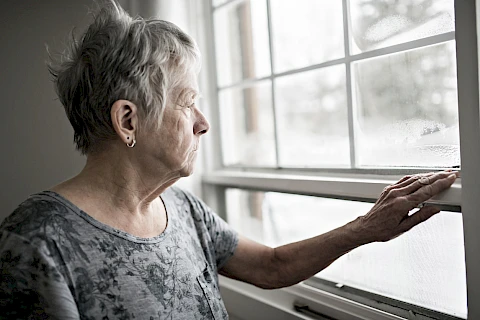
Many people experience shifts in their mood and energy levels as the colder months set in. These changes can be particularly challenging for seniors who may be more vulnerable to the effects of Seasonal Affective Disorder (SAD), a type of depression triggered by seasonal changes. Recognizing the signs and understanding SAD’s impact on seniors is the first step toward effective management.
SAD in Older Adults
Seasonal Affective Disorder is more than just the "winter blues". It can significantly impact mood, energy, and overall mental health. Seniors are particularly susceptible to SAD for several reasons, including less exposure to natural light and changes in routine due to retirement. Mental health awareness during the winter months is vital, as untreated depression can lead to more severe health issues in seniors.
Recognizing Symptoms
Being attuned to the symptoms of SAD can help in taking timely action. In seniors, symptoms may include:
- Persistent feelings of sadness or hopelessness
- Loss of interest in activities they once enjoyed
- Changes in weight or appetite
- Sleep problems, such as oversleeping or difficulty falling asleep
- Difficulty concentrating or making decisions
These symptoms can affect a senior's daily life, making simple tasks feel overwhelming. They can also vary in intensity and might be mistaken for typical signs of aging or other health conditions. Monitoring behavioral and emotional changes during the winter months allows for timely intervention.
Coping Strategies
While SAD can be challenging, several strategies can help alleviate its symptoms. Encourage seniors to get outside during daylight hours, even on cloudy days. Exposure to natural light can improve mood and energy levels. Light therapy using a special lamp can also help mimic natural sunlight and improve mood.
Establishing a daily routine can lend a sense of structure and purpose. A consistent schedule can provide a sense of normalcy, helping seniors manage their day-to-day activities more effectively. Encourage them to participate in community events or family gatherings to maintain social connections, lift their spirits, and reduce feelings of isolation.
A balanced diet of fruits, vegetables, and whole grains can improve mood. Regular exercise, such as walking or yoga, also boosts energy levels. Seniors should always consult a doctor before starting a new fitness routine.
Creating a supportive environment is just as important. A well-lit and inviting home can make a big difference during the dreary colder months. Small changes like using brighter light bulbs or arranging furniture closer to windows can create a more uplifting space.
When to Seek Professional Help
Despite best efforts, there might be times when professional help is necessary. Watch for symptoms that last for weeks without improvement, signs that SAD is interfering with daily activities, or any mention or signs of self-harm or suicidal thoughts. These are serious indicators that require immediate attention. Prompt intervention can help seniors regain their mental well-being.
Ensure Senior Winter Mental Wellness With Support From Senior Helpers
Prioritizing mental health during the colder months can do wonders for our senior loved ones’ mental well-being. With the right approach and appropriate support, seniors can experience a more positive and fulfilling winter season. If you’re considering in-home care for a senior loved one this winter or beyond, we can help. Senior Helpers Appleton specializes in customized senior home care solutions, including assistance with daily living activities, companionship and conversation, and other aspects of senior care. Contact us for personalized care in Appleton, Menasha, Neenah, Oshkosh, and the surrounding Fox Cities area.